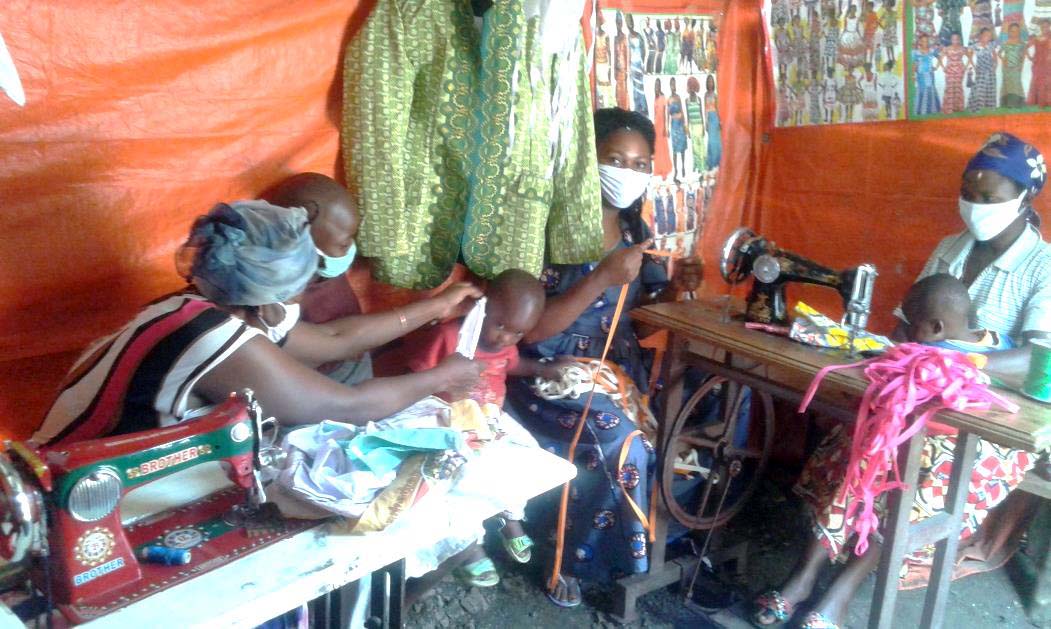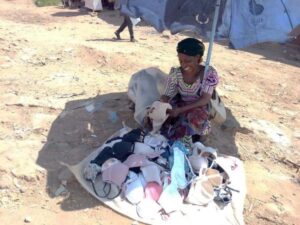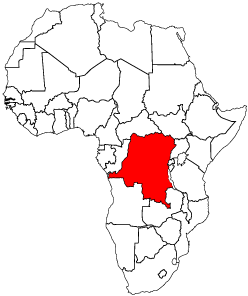DR CONGO: Over 120 poor mothers receive support for their small businesses

Don Bosco Center provides support to women who cannot pay their AVEC group dues
(MissionNewswire) For the last two years, the Don Bosco Center, located in the city of Bukavu in the eastern region of the Democratic Republic of the Congo (DRC), has been supporting women who wish to join women’s groups run by the Association Villageoise d’Epargne et Crédit (AVEC), an association for savings and credit in the villages. The Don Bosco Center has helped create 20 groups of women, mostly mothers.
Every week, the women had been depositing 1,000 to 5,000 Congolese Francs (CF), which is roughly 60 cents, into their group’s safe, in addition to depositing another 200 CF in the solidarity fund. After a few weeks, the group members can apply for credit and receive up to 10,000 CF to help in situations of necessity such as the birth of a child, an illness or a death in the family. AVEC groups promote solidarity, teach how to manage money and savings, and give the possibility to apply for a loan to start a small business.
Since the beginning of the pandemic, the conditions in the DRC have worsened and many women no longer have the money to pay their AVEC group dues. Two social workers with the Don Bosco Center in Bukavu have been trying to help.
“Nicole and Gisèle have distributed start-up aid, from $50-$150 to over 120 very poor mothers who were unable to start a small income generating business and participate fully in the AVEC group,” said Father Piero Gavioli, director of the Don Bosco Center.

Over 120 very poor mothers receive support through the Don Bosco Center in the Democratic Republic of the Congo.
Those who have been helped include Francoise, Esperance and Anastasie. Francoise received $80 to boost her small spice and shoe shop. As her business was progressing, she was able to help respond to the needs of her family. As the supply of spices from Rwanda became difficult with the pandemic, she began selling underwear. She is a member of the AVEC Tuamke group of Camp TV and is very grateful to the Salesians for their help.
Esperance and her husband are partners of the same AVEC group. They received $150 dollars in aid which enabled them to restart their businesses. Esperance’s husband strengthened his small resale of cigarettes and sundries business in the large market of Kadutu, and Esperance began to sell plantains at the market of Muhanzi. The confinement due to the pandemic had interrupted their activity, but now they are moving forward.
Finally, Anastasie, who is the president of her AVEC group, received a $120 sewing machine from her group. Before, group members took turns using three old machines, but now these mothers have the opportunity to use a good quality machine and sew clothes that they sell to survive.
“Mothers have thanked the Don Bosco Center for the help received. Their thanks is for the people who gave us the means to help them. May the Lord bless them,” concluded Fr. Gavioli.
Despite its vast material wealth, the DRC has long been a very poor nation. Half of the country’s population lives below the poverty line on less than $1 a day, especially those in rural communities. Because of ongoing strife and violence within the country, more than 8.5 million people are in urgent need of humanitarian assistance, a figure that’s expected to increase. More than 4.1 million Congolese are now displaced with 620,000 seeking refuge in neighboring countries. More than 7.5 million people do not have enough food to eat.
Salesian missionaries have been working in the DRC for more than 100 years ensuring that the most vulnerable children are not forgotten. Salesian primary and secondary schools and programs lay the foundation for early learning while Salesian trade, vocational and agricultural programs offer many youth the opportunity for a stable and productive future.
###
Sources:
ANS Photo (usage permissions and guidelines must be requested from ANS)
Don Bosco Center Bukavu Facebook
Salesian Missions – Democratic Republic of the Congo
UNICEF – DR Congo
*Any goods, services, or funds provided by Salesian Missions to programs located in this country were administered in compliance with applicable laws and regulations, including sanctions administered by the U.S. Department of Treasury’s Office of Foreign Asset Control.





